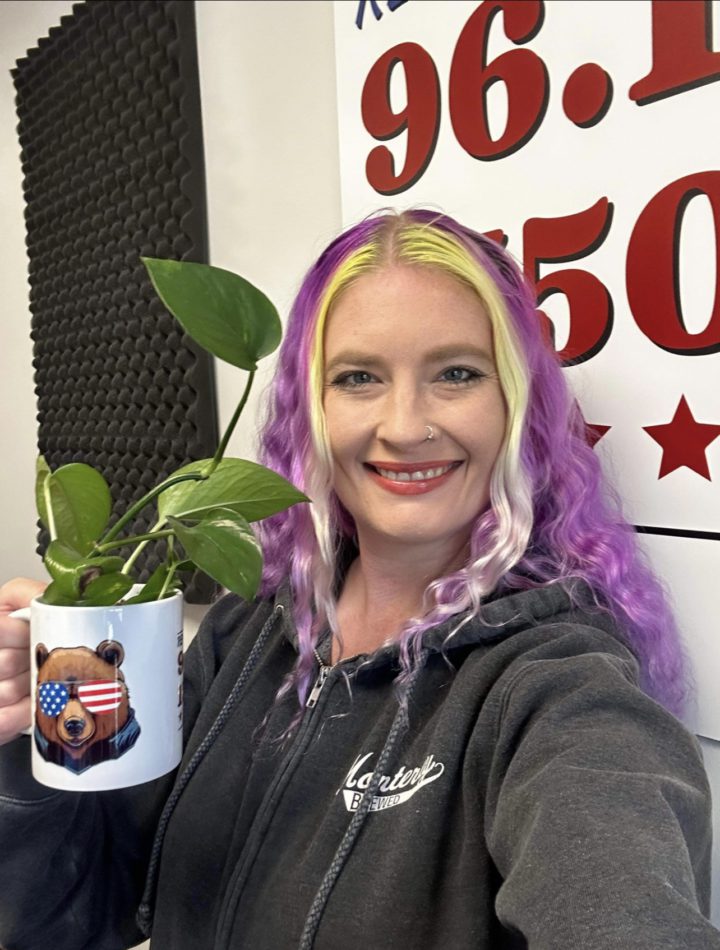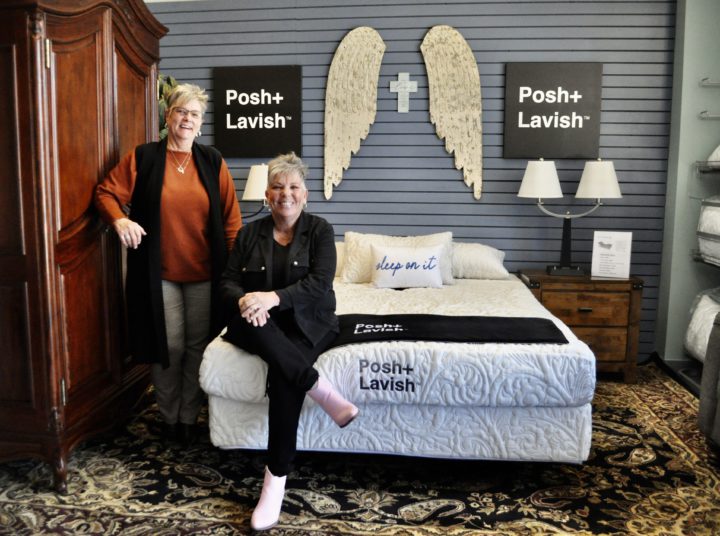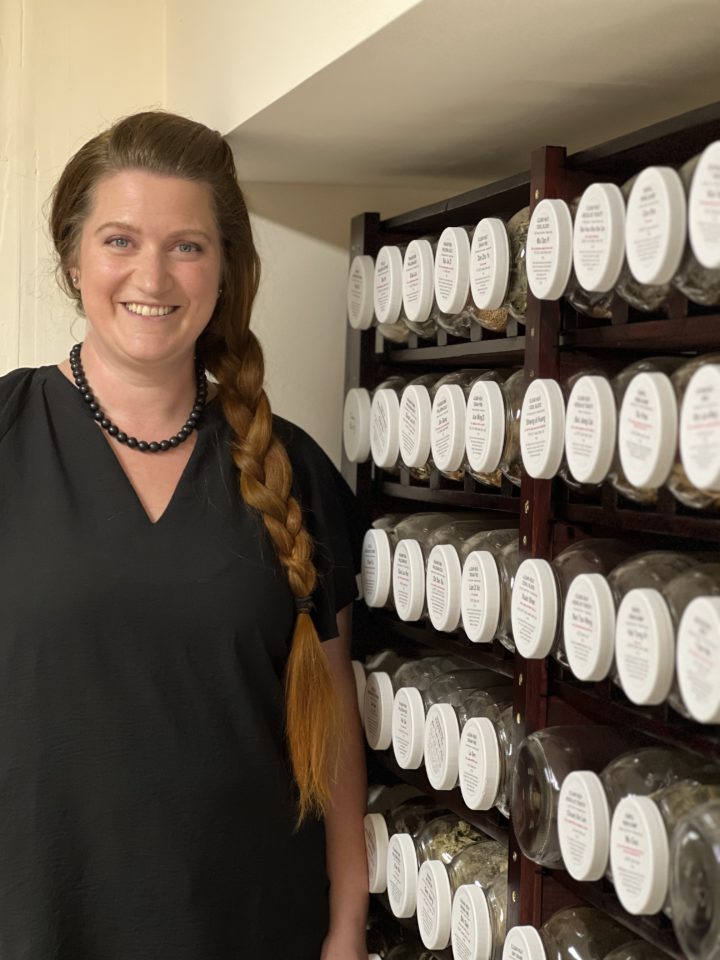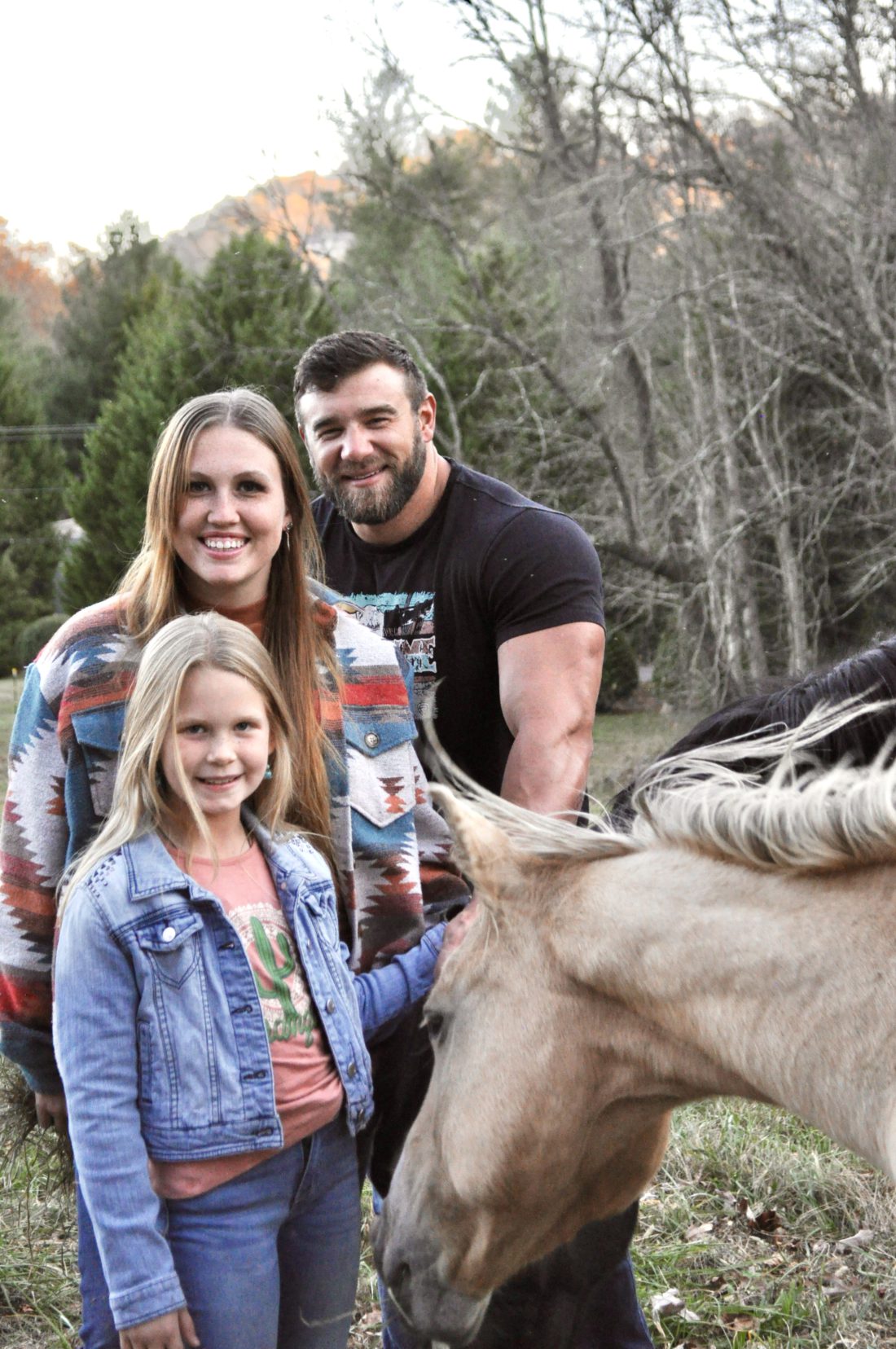by Kelly Gray
It’s 1 a.m., and the night yawns ahead. By 3 a.m., your eyeballs feel like saucers. You tell your mind and body to shut down, but they work as a team to rob you of what you desire most in this world — the sweet elixir of natural sleep.
Welcome to life with chronic insomnia; you are not alone. According to the Cleveland Clinic, about 10% of the world’s population experiences insomnia that qualifies as a medical condition. These individuals either struggle falling asleep, staying asleep or getting enough quality sleep.
In pursuit of the Holy Grail — natural sleep unaided by pharmaceuticals — some residents have resorted to an array of methods, including working with horses, massage therapy and dance.
‘Window of opportunity’
Juliane Groger is the morning anchor at 96.1 “The Bear.” Her “Jewel in the Morning” show, running 7-10 a.m. during the week, also airs on 1350 AM in Black Mountain.
Along with informing her listeners about country music, she also shares her story about sleep and the impact it has on her life. Groger can’t ever recall having a normal sleep cycle.

“When you are an insomniac, and you finally fall asleep, you don’t want anything interrupting your sleep. It’s challenging to wake up [because] it’s not like a normal person, where you can go right back to sleep,” she says.
As a mother of two young children, she adds, “It can be a challenge to get enough sleep.”
Recently, Groger experienced one of her worst sleepless nights in months, missing what insomniacs call “the window of opportunity,” the short time an insomniac feels the body start to fall asleep. Miss that window and sleep escapes.
“When you have extreme insomnia, the more you don’t sleep, the more you panic, and then the more you panic, the more you don’t sleep,” says Groger, who once didn’t sleep for four straight days. “The problem with most medications is that they don’t work forever; plus I am a parent, so I can’t live my life feeling medicated.
“Suggesting melatonin to people with an extreme level of insomnia is like putting a Band-Aid on a bullet wound,” she continues. “I feel like saying, ‘Yes I’m trying. Yes, I am doing everything I can, but I can’t force my body to sleep.’ And even now, people still don’t understand how painful it is to go without sleep.”
She’s found that weightlifting is a huge help in combating sleeplessness, along with a wind-down exercise routine to encourage her body to be more receptive to sleep.
“You have to burn off that energy … with dancing or anything that helps you get up and move,” says Groger. “Light weightlifting as part of a wind-down routine is helpful.”
Horsing around
The internet is full of obvious sleep hygiene tips — less screen time, meditation, a restful sleep environment — but most suggestions are child’s play to a lifelong insomniac.
A lesser-known suggestion has hooves. Those who volunteer with horses say the interactions even out disordered sleep and mood, and decrease anxiety and stress levels. One study showed that equine therapy volunteers increased average sleep time by up to 30 minutes for each session spent with the horses. Another five-part study revealed that relationships between horses and humans affect heart rates.
Volunteers at equine sanctuary Hope for Horses in Leicester, a home to 16 displaced horses, say working with horses helps them sleep at night.
“I have struggled with sleep since I was a kid and without a doubt, being around horses creates a grounding calmness that does make sleep and staying asleep better,” says volunteer Jackie Austin, a cancer survivor. “Humans helped save my life twice, but animals helped heal me.”
Lifelong equestrian Ashlee Gill of Asheville agrees. She and husband, Trever, and daughter, Paislee, care for more than a dozen horses at their TAG farm.
“Don’t underestimate the power of time spent cleaning stalls to help you get more sleep at night — sift by sift, bucket by bucket, and one wheelbarrow load after another, with the horses soft breaths and steady swish of a tail, it is soothing,” says Gill. “This is when I have done my best thinking, made big decisions and wrestled with some of the toughest battles.”
Got the right bed?
A more fundamental factor regarding slumber is where you sleep. One of the most common culprits disturbing sleep is a bad bed. Deb Vetere and Christy Corna, owners of mattress store Sleep On It in Arden, say if you’re not sleeping on the right mattress, you don’t have a prayer of getting enough rest.
“Better sleep equals better health, because we spend 33% of our lives in our beds,” says Vetere. “We see people come in with back and neck issues, fibromyalgia and different ailments that create pain, and they quickly discover that their bed is a healing element.”
If a mattress is too soft, a heavy-set person will sink; too firm, and someone with fibromyalgia will experience nerve discomfort.

“You want to be on your mattress, not in your mattress,” says Vetere. Speaking of things in a mattress — Sleep On It clients are often horrified at the reason foam mattresses eventually harden.
“Memory foam collects bacteria when you sweat,” says Vetere. “It’s like a sponge on your kitchen sink, becoming floppy in summer, and in the winter, it becomes like a rock, so it doesn’t maintain shape for the support your body should be getting.”
Gel mattresses keep cool, which regulates body temperatures, while pushing moisture away from the body so it does not collect bacteria.
“Ordinary mattresses can make allergies worse, especially for children, so we recommend eco-friendly, natural mattresses,” says Corna. “When sleeplessness is caused by sleeping position, we recommend a bed and pillows to help the sleeper switch positions, resolving the issue, and sometimes, that’s all someone needs to sleep better.”
A medical approach
Dr. James Graham, director of sleep medicine at Mission Health, can address sleep apnea, a condition in which people stop breathing while asleep. Treatments can include a CPAP (continuous positive airway pressure) machine, weight loss or surgery. But problems with insomnia can be much harder to treat, even with good sleep hygiene like less screen time and eliminating caffeine. But those efforts do help, Graham says.
“If you look at a toddler who has to be rocked to fall asleep, they cannot fall asleep without that stimulus,” he says. “You need a time in the evening to wind down outside the bedroom, because the more you allow yourself to do in bed that is meant to be an awake activity, the more you are telling your brain, it’s OK to stay awake.”
Dr. Christina Velderman uses traditional Chinese medicine at Soulfire Medicine in Asheville to treat imbalances in the body, including insomnia.

“Insomnia is sometimes difficult to treat because there are so many different potential causes, and they often appear alongside one another,” says Velderman. “It may take some time, but at the core, the body wants to find its way back into balance, and if you stick with it, you will be able to get back to deep, restorative sleep again.”
Hope Nichols found better quality sleep after she began seeing Velderman.
“I was two years into menopause, navigating the ending of a romantic relationship, in deep grief from the recent passing of a dear friend as well as manifesting symptoms from other traumas when I began treatment,” says Nichols. “Dr. C’s skills brought me and my body back from the most dark, lonely and malnourished place, and sleep was one aspect of my life that was improved.”
Velderman often uses a combination of acupuncture and custom-crafted herbal medicines.
“Acupuncture opens a conversation and asks the body to shift how its systems are interacting, while herbal medicine gives the internal organs the tools with which to carry out the request,” says Velderman.
“Chronic conditions like ongoing insomnia leave your body in a state of depletion from which it can be very difficult to rebuild, so traditional Chinese medicine works to harmonize the natural cycles implementing simple and practical steps that work with a modern lifestyle.”
Since cost can be a barrier to treatment, Velderman created an online program called Elemental Alchemy, a personalized system of mind-body-spirit self-care, incorporating the methods she recommends to patients most frequently in the clinic. It offers live or on-demand weekly group coaching and self-paced online learning resources.
Massage therapist Tillman “Bubba” Miles of Sparrow’s Nest massage therapy in Asheville helps clients relieve muscular issues, injuries, chronic pain, work-related aches and pains, and hormone imbalances that rob patients of sleep.
“Once aches and pains are alleviated, or at least lessened, the muscles learn to relax again and the body is able to naturally rest through the night,” he says. “For chronic pain, regular massage offers relief by improving mobility, and it helps balance hormones, allowing the body to naturally fall asleep easier and sleep deeper.”
Insomnia is one of the most common types of disordered sleep. It is pervasive and difficult to treat, but it is manageable.
“Don’t be afraid to say you have a sleep problem,” says Graham. “Because how you sleep really affects your quality of life, memory, blood pressure, diabetes control — it touches so many different conditions.”




Before you comment
The comments section is here to provide a platform for civil dialogue on the issues we face together as a local community. Xpress is committed to offering this platform for all voices, but when the tone of the discussion gets nasty or strays off topic, we believe many people choose not to participate. Xpress editors are determined to moderate comments to ensure a constructive interchange is maintained. All comments judged not to be in keeping with the spirit of civil discourse will be removed and repeat violators will be banned. See here for our terms of service. Thank you for being part of this effort to promote respectful discussion.